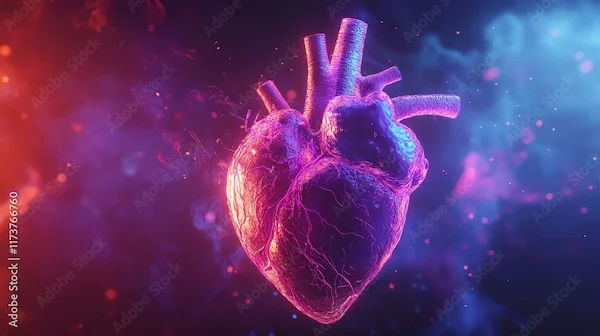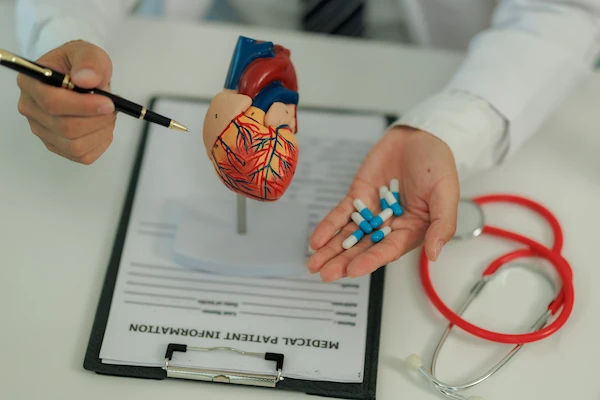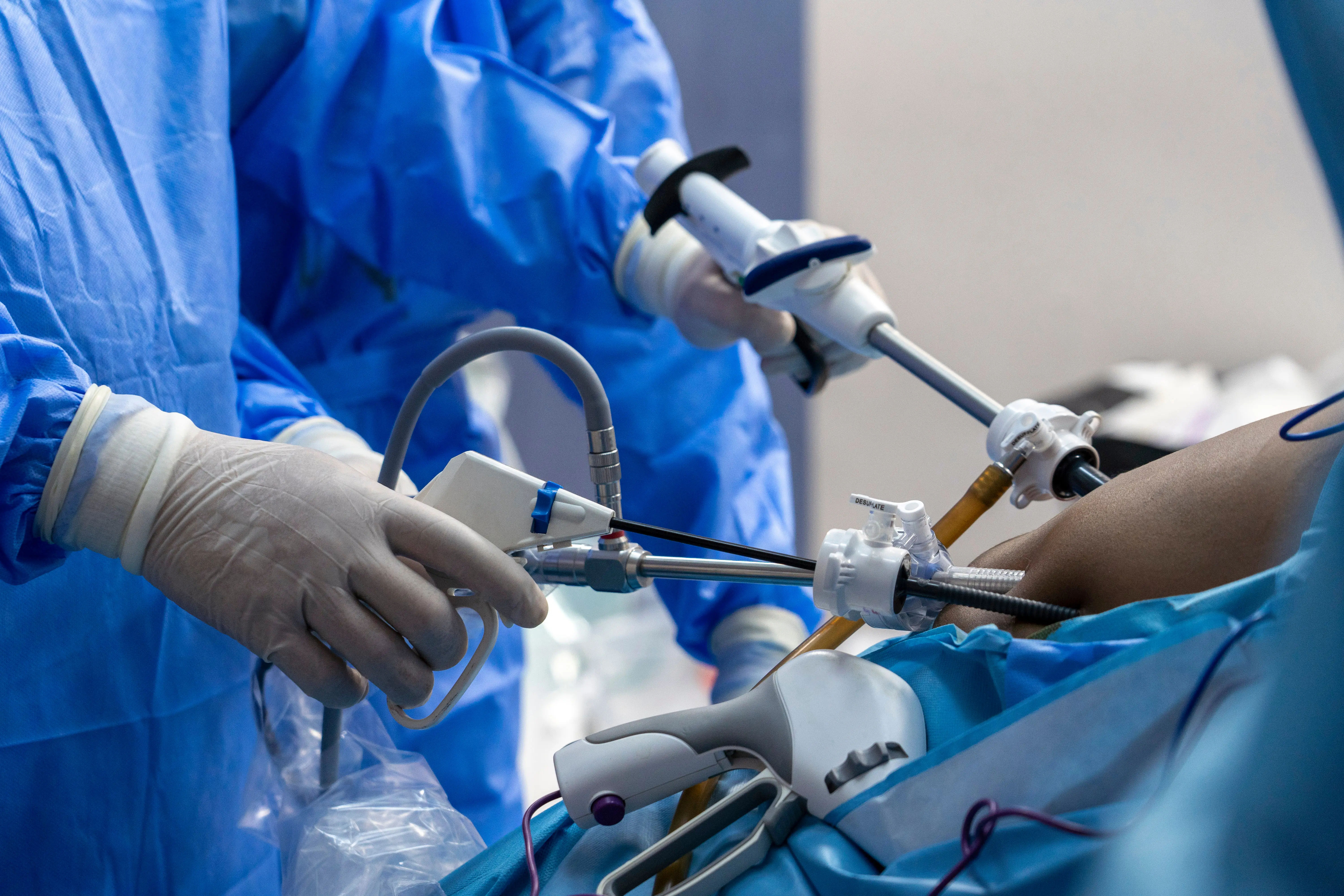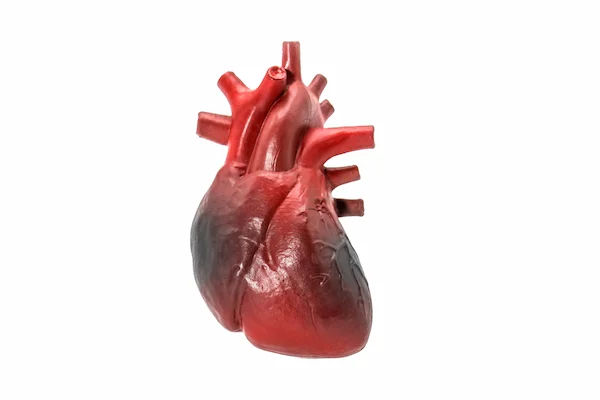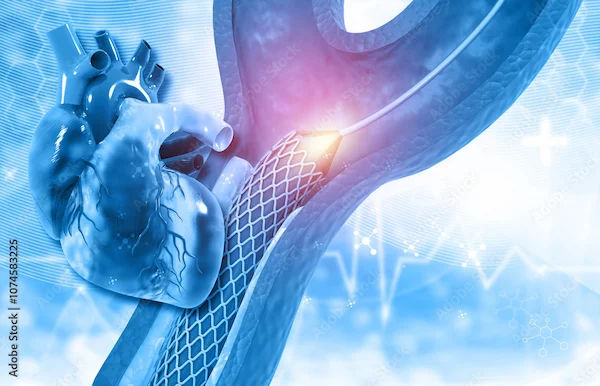Heart Attack Warning Signs: What You Need to Know
Recognize the critical signs of a heart attack. Learn to identify symptoms like chest pain, shortness of breath, and arm/jaw pain. Know when to call for immediate medical help and save a life.

Written by Dr Shreya Sarkar
Last updated on 3rd Jul, 2025
Heart disease is a leading cause of death worldwide, and understanding the warning signs of a heart attack can make a critical difference in saving lives. A heart attack, or myocardial infarction, occurs when the flow of oxygen-rich blood to a part of the heart muscle is blocked. This blockage can cause significant damage to the heart muscle and can be fatal if not treated promptly. In this article, we will explore the warning signs of a heart attack, why they occur, and what steps you can take if you or someone else experiences these symptoms.
What is a Heart Attack?
A heart attack occurs when one or more of the coronary arteries that supply blood to the heart become blocked. This blockage is usually due to the buildup of fatty deposits called plaques. When a plaque ruptures, a blood clot can form around it, obstructing blood flow to the heart muscle. Without enough oxygen-rich blood, the affected part of the heart muscle can be damaged or die.
Understanding the warning signs of a heart attack is crucial for early intervention and treatment. Timely medical attention can help reduce the damage to the heart and improve the chances of survival.
Common Heart Attack Warning Signs
Recognising the warning signs of a heart attack can be life-saving. Here are the most common symptoms to watch out for:
1. Chest Pain or Discomfort
Chest pain or discomfort is the hallmark symptom of a heart attack. It often feels like pressure, squeezing, fullness, or pain in the centre of the chest. This discomfort can last for more than a few minutes or come and go.
Location: The pain may radiate to the shoulders, arms, neck, jaw, or back.
Duration: The discomfort may be persistent or intermittent.
2. Shortness of Breath
Shortness of breath can occur with or without chest discomfort. It may feel like you can't catch your breath or are breathing harder than usual without any clear reason.
Associated Symptoms: This can be accompanied by lightheadedness, dizziness, or sweating.
3. Nausea and Vomiting
Feeling nauseous or vomiting can be a less obvious sign of a heart attack, especially in women. These symptoms may be mistaken for gastrointestinal issues.
Onset: Nausea can occur suddenly or gradually.
4. Cold Sweat
Breaking out in a cold sweat without an obvious cause can be a warning sign of a heart attack. Other signs, such as chest discomfort and shortness of breath, can often accompany this symptom.
Experience: Patients may describe it as a clammy feeling or excessive perspiration.
5. Fatigue
Unusual or unexplained fatigue is another warning sign, particularly in women. This extreme tiredness can occur days or even weeks before a heart attack.
Severity: The fatigue may be so severe that it interferes with daily activities.
6. Lightheadedness or Dizziness
Feeling lightheaded or dizzy can be a sign of a heart attack. This may be due to a drop in blood pressure caused by the heart's inability to pump blood effectively.
Accompanying Symptoms: This can occur with or without chest pain and may be associated with nausea.
Less Common Heart Attack Warning Signs
While the above symptoms are the most common, some individuals may experience less typical warning signs, including:
Jaw, Neck, or Back Pain: Unexplained pain in these areas, particularly if it occurs suddenly or is unrelated to physical exertion.
Indigestion or Heartburn: Feeling like you have indigestion or a burning sensation in the chest or upper abdomen.
Palpitations: Feeling like your heart is racing or fluttering.
Why Do These Symptoms Occur?
The symptoms of a heart attack occur because the heart muscle is not receiving enough oxygen-rich blood. The severity and type of symptoms can vary depending on the location and extent of the blockage, as well as individual differences in pain perception and overall health.
Chest Pain: The classic symptom of chest pain occurs because the heart muscle is deprived of oxygen. The pain may radiate to other areas due to the shared nerve pathways between the heart and these regions.
Shortness of Breath: When the heart is not pumping effectively, the body may struggle to get enough oxygen, leading to shortness of breath.
Nausea and Vomiting: Reduced blood flow to the heart and other organs, as well as the body's stress response, can cause gastrointestinal symptoms.
Cold Sweat and Fatigue: The body's response to stress and reduced blood flow can trigger sweating and extreme tiredness.
Lightheadedness: A drop in blood pressure and reduced blood flow to the brain can cause dizziness and lightheadedness.
Actionable Advice
Early recognition and response to heart attack warning signs are essential. Here are some actionable steps for patients:
1. Seek Immediate Medical Attention
If you or someone you know experiences heart attack warning signs, seek medical help right away. Do not wait to see if the symptoms subside.
Emergency Number: Call emergency services (such as 108) immediately. Do not drive yourself to the hospital.
2. Take Aspirin
If a healthcare provider advises, chew an aspirin while waiting for emergency responders. Aspirin can help reduce blood clotting and improve blood flow to the heart.
Dosage: A standard dose is typically one 325-milligram tablet.
3. Stay Calm and Rest
While waiting for medical help, remain calm and rest. Avoid physical exertion and sit or lie down in a comfortable position.
Breathing Techniques: Practice deep breathing to help stay calm and reduce anxiety.
4. Inform Emergency Responders
When emergency responders arrive, provide detailed information about symptoms, medical history, and any medications being taken.
Medical Information: Keep a list of medications, allergies, and medical conditions readily available.
Preventive Measures
In addition to recognising warning signs, patients can take steps to reduce the risk of a heart attack:
1. Adopt a Heart-Healthy Diet
Eating a balanced diet rich in fruits, vegetables, whole grains, lean proteins, and healthy fats can help reduce the risk of heart disease.
Avoid: Limit intake of saturated fats, trans fats, cholesterol, and excessive salt and sugar.
2. Regular Exercise
Regular physical activity, such as walking, swimming, or cycling, can improve cardiovascular health and reduce the risk of heart attacks.
Frequency: Aim for at least 150 minutes of moderate-intensity exercise per week.
3. Quit Smoking
Smoking is a major risk factor for heart disease. Quitting smoking and avoiding exposure to secondhand smoke can significantly reduce the risk of heart attacks.
Support: Seek help from healthcare providers, support groups, or smoking cessation programs.
4. Manage Chronic Conditions
Proper management of chronic conditions such as high blood pressure, high cholesterol, and diabetes is essential for heart health.
Medications: Take prescribed medications as directed by your healthcare provider.
Conclusion
Recognising the warning signs of a heart attack is crucial for timely intervention and can save lives. Symptoms like chest pain, shortness of breath, nausea, cold sweats, fatigue, and dizziness should never be ignored. Immediate medical attention is essential—call emergency services (such as 108 in India) if these symptoms occur. Acting quickly can prevent further heart damage and increase recovery chances.
Adopting preventive measures, such as maintaining a heart-healthy diet, engaging in regular exercise, quitting smoking, and managing chronic conditions, can significantly reduce the risk of heart attacks. Staying informed and prepared empowers you to take charge of your heart health and safeguard your well-being.
Consult Top Cardiologist
Consult Top Cardiologist

Dr. Chandra Prakash Thakur
Cardiologist
5 Years • MBBS, MD ( Medicine), DM ( Cardiology)
Guwahati
Apollo Hospitals G S Road, Guwahati

Dr. Bhethala Sharan Prakash
General Physician/ Internal Medicine Specialist
5 Years • MBBS MD
Bengaluru
PRESTIGE SHANTHINIKETAN - SOCIETY CLINIC, Bengaluru

Dr. Sumanta Chatterjee
Cardiologist
12 Years • MBBS,MD General Medicine,DM Cardiology
Kolkata
HealthYou Speciality Clinic & Diagnostics., Kolkata
(25+ Patients)
Dr. Praveen Kumar
Cardiologist
25 Years • MBBS, MD (Medicine), DM (Cardiology)
Ghaziabad
Navaanya wellness, Ghaziabad

Dr. Anand Ravi
General Physician
2 Years • MBBS
Bengaluru
PRESTIGE SHANTHINIKETAN - SOCIETY CLINIC, Bengaluru
